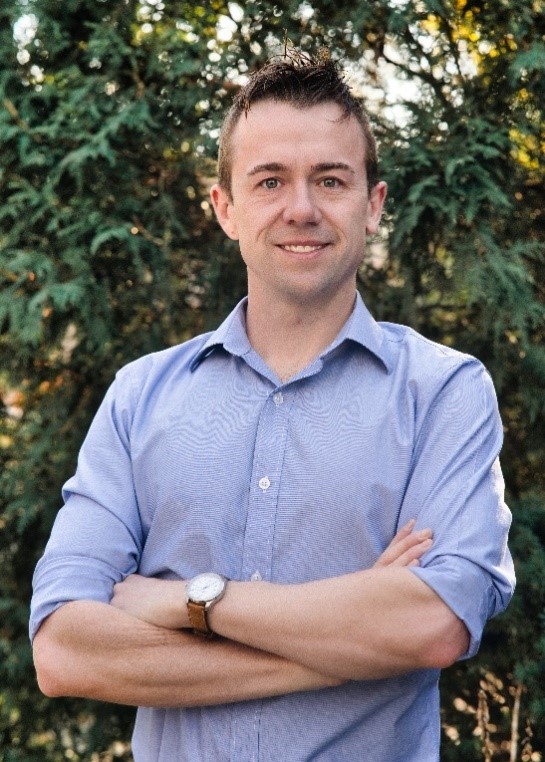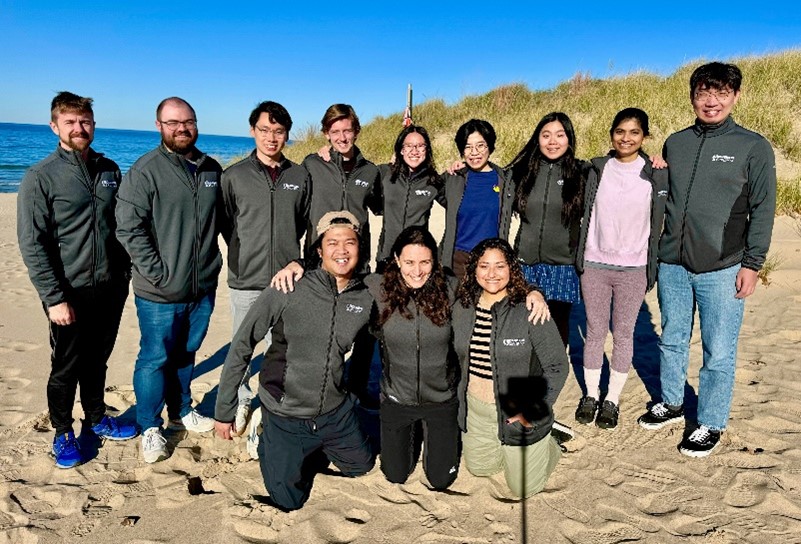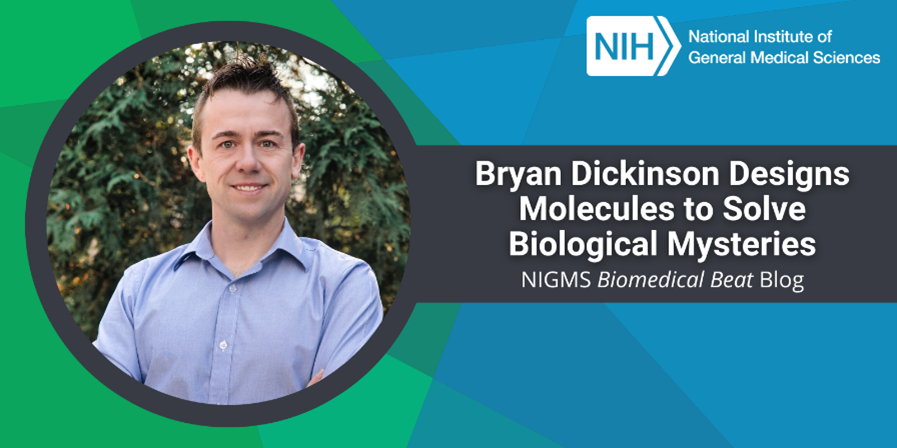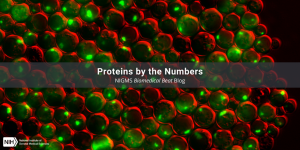
“Being a researcher gives you the opportunity to have an impact on the world. It’s a privilege to be able to answer questions that can make a difference in people’s lives,” says Bryan Dickinson, Ph.D. He first fell in love with science as an undergraduate student, and now, as a professor of chemical biology at the University of Chicago, Dr. Dickinson still finds excitement in even the most challenging research questions.
Where Chemistry Meets Biology
Dr. Dickinson majored in biochemistry at the University of Maryland (UMD) in College Park, but he didn’t know what it meant to be a researcher until he started working in labs. His experiences in an analytical chemistry lab at the U.S. Food and Drug Administration and then a biophysics lab at UMD helped him realize that research isn’t like science taught in the classroom, with a list of facts to learn. “The reality is that science is a set of guiding principles that we test under different conditions to learn when they apply in the world,” says Dr. Dickinson. He enjoyed the freedom in asking scientific questions and in how research could be like solving a puzzle.
Dr. Dickinson brought his excitement about research to the University of California, Berkeley, as he worked on a Ph.D. in chemistry under the mentorship of Christopher Chang, Ph.D. He was especially interested in designing molecules that could change biological systems in ways that enabled researchers to better understand human health or helped clinicians treat diseases. Dr. Dickinson created molecular probes to detect harmful oxidants in cells, making it easier to study their effects.
After building a molecule based on his own design, Dr. Dickinson wanted to learn techniques that instead employed nature’s power of design during his postdoctoral training. He joined the lab of David Liu, Ph.D., at Harvard University in Cambridge, Massachusetts, and learned how to use directed evolution to discover molecules with new properties. The goal of one of his directed evolution experiments was to learn how a specific viral protein changes after it’s exposed to a medicine that inhibits its function. To do this, Dr. Dickinson exposed growing cultures of bacteriophages—viruses that infect bacteria—that expressed the protein of interest to the medicine. The medicine acted as a selective pressure, an environmental change that forces adaptations in order to survive. Only the bacteriophages that adapted beneficial changes in that specific protein survived the experiment.
Dr. Dickinson sampled the growing cultures over time and studied the proteins the bacteriophages made to uncover how they overcame the selective pressure. Through this process, he learned how the medicine may cause antiviral resistance when given to patients. Findings like these could help researchers design new medicines that are more difficult for viruses to evade.
Making Molecules

Now heading his own research team, Dr. Dickinson says, “I envisioned building a lab that was dedicated to tackling big problems, but I didn’t want us to be limited to a single technique. All of the projects in my lab use different methods, but the common thread is that they all involve making molecules.” One project, funded by NIGMS, studies protein lipidation, the process by which cells add lipids to proteins to form lipoproteins. When a lipid attaches to a protein, it changes the protein’s characteristics, such as how it interacts with other proteins, how its shape changes, or where it’s found in a cell. Cells use lipidation to regulate processes like signaling: If the cell needs to turn off a signaling pathway, it can attach a lipid to a crucial protein to trap it in a membrane, preventing it from passing on the signal.
Lipoproteins are important research targets due to the roles they play in conditions such as cancer, neurological diseases, and some inflammatory diseases. However, researchers have struggled to study protein lipidation because they’re unable to inhibit the enzymes that add and remove lipids. Dr. Dickinson is designing inhibitor molecules to block the activity of these enzymes, which will help scientist better understand protein lipidation in both normal and disease states.
Free to Explore
Dr. Dickinson’s proudest achievement isn’t a research project of discovery, but instead, the environment he and his lab members have cultivated. When he started his lab, he had a vision of not only the type of science they’d do, but also how they’d do it. “I wanted to build a lab full of fearless scientists: those brave enough and creative enough to answer difficult questions and those willing to take a step into the unknown,” Dr. Dickinson says. “It’s important to me that the researchers and students in my lab feel the same freedom to explore that I felt when I first fell in love with research.”
Dr. Dickinson’s research is supported by the NIGMS Maximizing Investigators’ Research Award program through grant R35GM119840. His work is also supported by the National Institute of Mental Health and the National Institute of Biomedical Imaging and Bioengineering.







